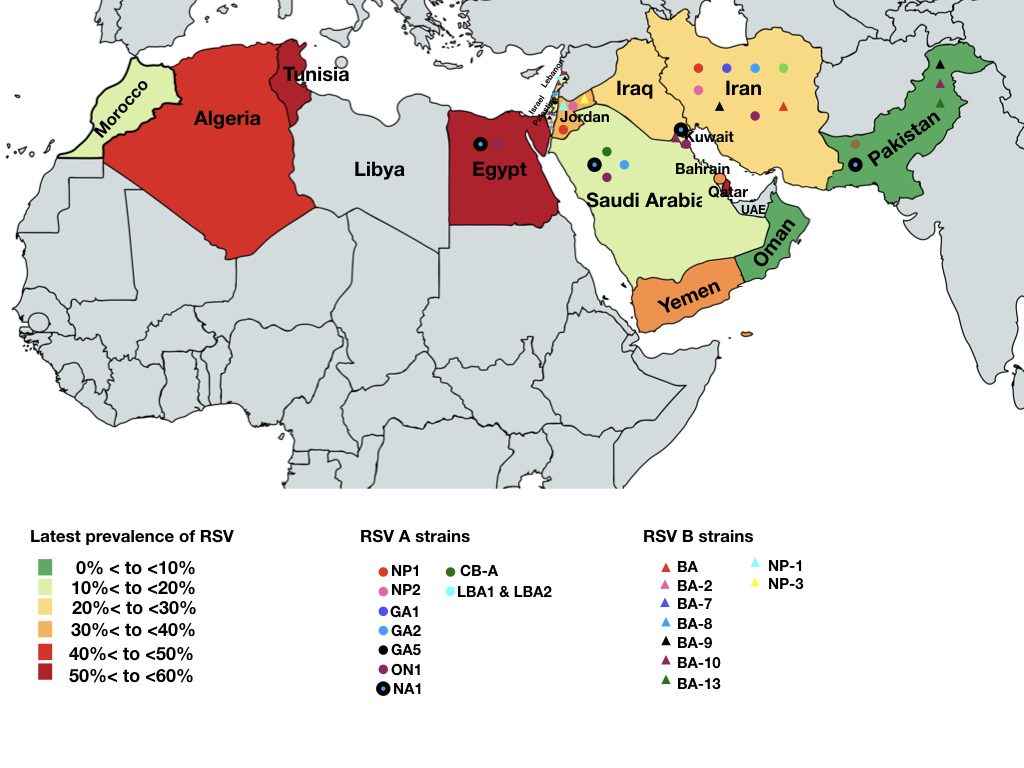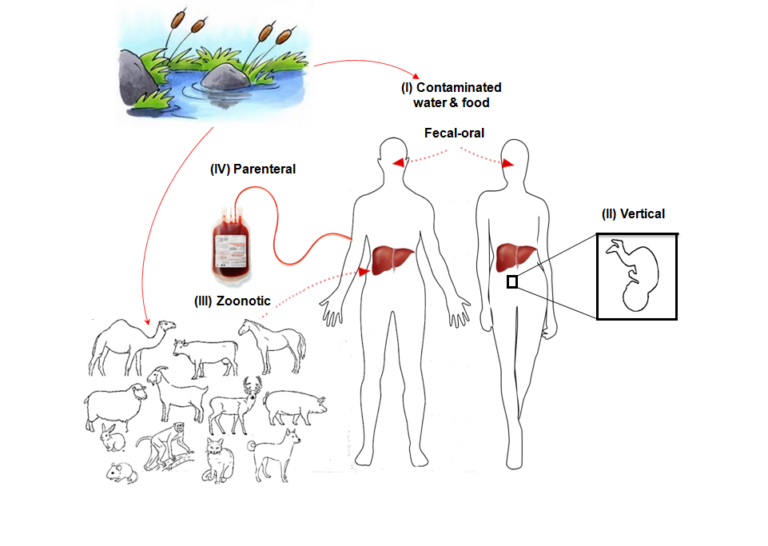
Research Details
- Research Name : Systematic Review of the Respiratory Syncytial Virus (RSV) Prevalence, Genotype Distribution, and Seasonality in Children from the Middle East and North Africa (MENA) Region
- Research Year : May 2020
Respiratory syncytial virus (RSV) is one of the most common viruses to infect children worldwide and is the leading cause of lower respiratory tract illness (LRI) in infants. This study aimed to conduct a systematic review by collecting and reviewing all the published knowledge about the epidemiology of RSV in the Middle East and North Africa (MENA) region. Therefore, we systematically searched four databases; Embase, Medline, Scopus, and Cochrane databases from 2001 to 2019 to collect all the information related to the RSV prevalence, genotype distribution, and seasonality in children in MENA region. Our search strategy identified 598 studies, of which 83 met our inclusion criteria, which cover the past 19 years (2000–2019). Odds ratio (OR) and confidence interval (CI) were calculated to measure the association between RSV prevalence, gender, and age distribution. An overall prevalence of 24.4% (n = 17,106/69,981) of respiratory infections was recorded for RSV. The highest RSV prevalence was reported in Jordan (64%, during 2006–2007) and Israel (56%, 2005–2006). RSV A subgroup was more prevalent (62.9%; OR = 2.9, 95%CI = 2.64–3.13) than RSV B. RSV was most prevalent in children who were less than 12 months old (68.6%; OR = 4.7, 95%CI = 2.6–8.6) and was higher in males (59.6%; OR = 2.17, 95%CI = 1.2–3.8) than in female infants. Finally, the highest prevalence was recorded during winter seasons in all countries, except for Pakistan. RSV prevalence in the MENA region is comparable with the global one (24.4% vs. 22%). This first comprehensive report about RSV prevalence in the MENA region and our data should be important to guide vaccine introduction decisions and future evaluation.



